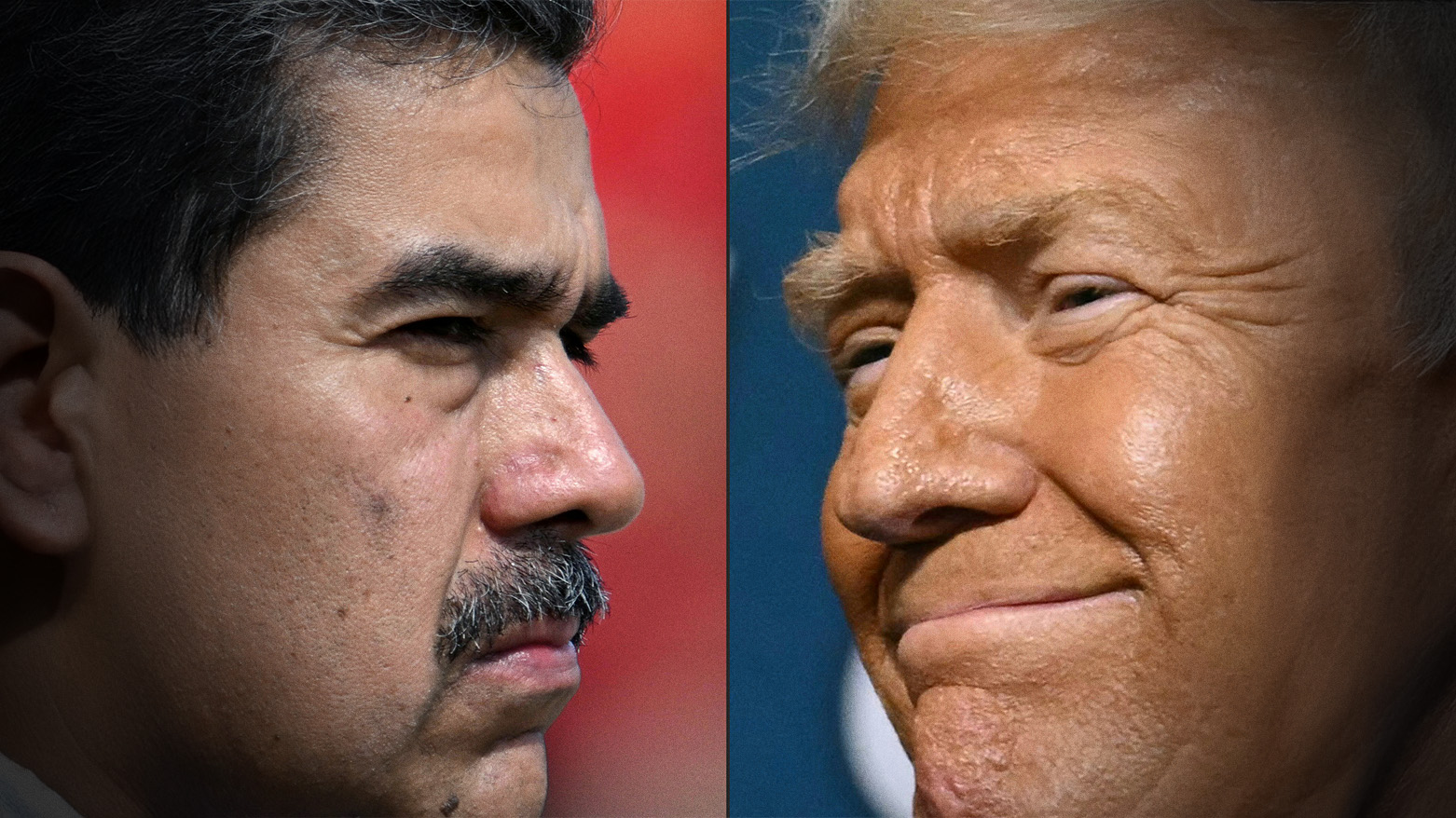Maduro Accuses Washington of ‘Fabricating a War’
Venezuelan President Nicolás Maduro accused the US of "fabricating a war" following a major military deployment near Venezuelan waters, including warships and bombers. Washington claims the operation targets drug trafficking, while Caracas views it as political escalation.

ERBIL (Kurdistan24) – Venezuelan President Nicolás Maduro on Friday accused the United States of “fabricating a war” following Washington’s latest military deployment in the Caribbean, a move that has intensified tensions across Latin America and stoked fears of an imminent confrontation.
“They are fabricating a new eternal war; they promised they would never again get involved in a war, and they are fabricating a war that we are going to prevent,” Maduro told state media, responding sharply to the Pentagon’s announcement of expanded naval and air operations near Venezuelan waters.
According to the U.S. Department of Defense, the aircraft carrier strike group is being deployed as part of a campaign to counter regional drug-trafficking networks. However, Caracas and many observers view the operation as a pretext for political and military escalation under the guise of anti-narcotics enforcement.
The Venezuelan leader’s comments came just a day after he urged Washington to avoid a “crazy war,” warning that the spiraling military buildup risked destabilizing the entire Caribbean basin. “Yes peace, peace forever. No crazy war, please,” Maduro pleaded in English during a televised address to labor unions aligned with his government.
Maduro’s appeal came amid a massive U.S. military deployment, which includes more than 10,000 troops, eight warships, a submarine, and advanced aircraft such as stealth jets and surveillance drones. The most visible show of power occurred on Thursday, when B-1 supersonic bombers conducted flights near Venezuelan territory—an unmistakable signal of U.S. military intent, according to defense analysts.
At the White House, President Donald Trump defended the campaign as part of a broader operation against “narco-terrorists,” calling it “a sweeping, unprecedented, and historically successful mission to remove foreign drug cartels from American soil.” Yet, the strikes—now numbering at least ten—have resulted in the deaths of more than 40 people, reportedly including fishermen and civilians, fueling widespread criticism and legal concerns over the use of lethal force in international waters.
While Washington insists its objective is to disrupt drug-trafficking routes, regional governments are increasingly alarmed by the scale and intensity of U.S. military maneuvers. On Thursday, the Pentagon confirmed upcoming joint naval exercises with Trinidad and Tobago, where the USS Gravely destroyer is set to dock between October 26 and 30. A contingent of U.S. Marines will conduct joint training with the Trinidad and Tobago Defense Force, a development that has drawn unease from Caribbean states already shaken by recent U.S. strikes.
In Caracas, Venezuelan Defense Minister Vladimir Padrino was seen overseeing military exercises along the nation’s coastline, warning that the country’s armed forces would respond decisively to any “foreign incursion.” He also accused the CIA of operating covertly within Venezuela and vowed that “any attempt will fail.”
Despite the escalating rhetoric, both Washington and Caracas have refrained from direct engagement, though analysts warn that the rapid militarization of the Caribbean could easily spiral into a full-blown confrontation.
Maduro’s accusations of war fabrication tap into a long history of U.S.–Venezuela hostility, particularly during moments of political instability. The Venezuelan government views the current operation as a disguised regime-change effort, pointing to Trump’s repeated references to “Maduro’s drug cartel” and his confirmation that he had authorized covert CIA action inside the country.
While the U.S. portrays its actions as part of a “war on drugs,” Maduro argues that this rhetoric masks a deeper geopolitical agenda aimed at toppling his administration. His government, supported by military loyalists, has declared its readiness to defend national sovereignty “at any cost.”
The rising tension has also divided American political circles. Several figures from within Trump’s own conservative base—among them former White House strategist Steve Bannon—have warned that the operation risks becoming “another forever war,” echoing the costly entanglements of past U.S. interventions.
The developments have left Latin America on edge, with regional leaders urging restraint and dialogue. Analysts caution that the combination of covert operations, high-powered weapon deployments, and ambiguous war rhetoric is creating one of the most dangerous standoffs in the Western Hemisphere in years.
As one regional observer told Kurdistan24, “What began as an anti-drug campaign is rapidly taking on the contours of a geopolitical confrontation—one that could engulf the entire Caribbean if diplomacy fails.”